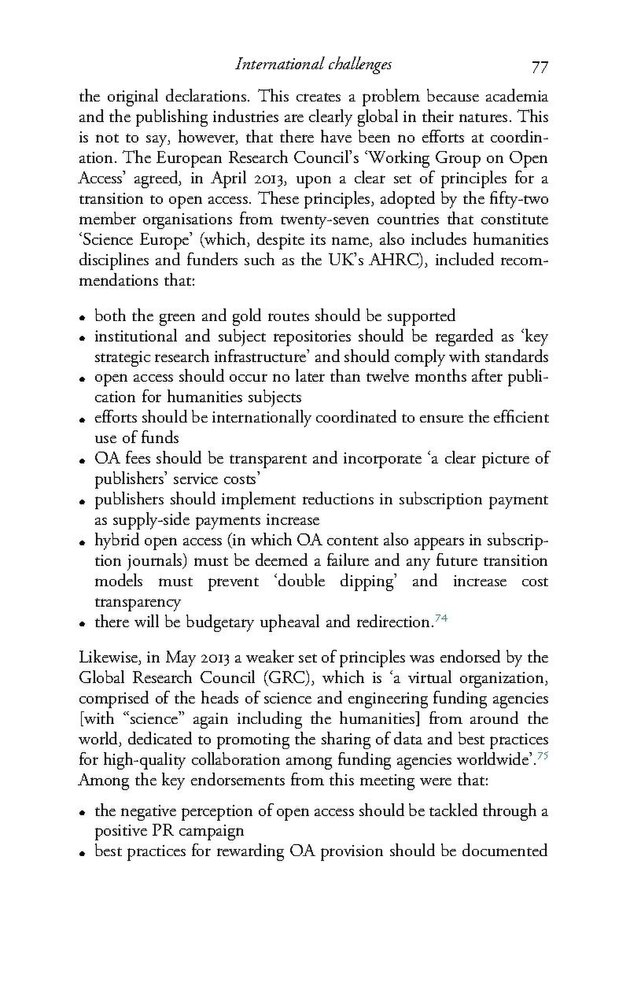the original declarations. This creates a problem because academia and the publishing industries are clearly global in their natures. This is not to say, however, that there have been no efforts at coordination. The European Research Council’s ‘Working Group on Open Access’ agreed, in April 2013, upon a clear set of principles for a transition to open access. These principles, adopted by the fifty-two member organisations from twenty-seven countries that constitute ‘Science Europe’ (which, despite its name, also includes humanities disciplines and funders such as the UK’s AHRC), included recommendations that:
- both the green and gold routes should be supported
- institutional and subject repositories should be regarded as ‘key strategic research infrastructure’ and should comply with standards
- open access should occur no later than twelve months after publication for humanities subjects
- efforts should be internationally coordinated to ensure the efficient use of funds
- OA fees should be transparent and incorporate ‘a clear picture of publishers’ service costs’
- publishers should implement reductions in subscription payment as supply-side payments increase
- hybrid open access (in which OA content also appears in subscription journals) must be deemed a failure and any future transition models must prevent ‘double dipping’ and increase cost transparency74
- there will be budgetary upheaval and redirection.
Likewise, in May 2013 a weaker set of principles was endorsed by the Global Research Council (GRC), which is ‘a virtual organization, comprised of the heads of science and engineering funding agencies [with “science” again including the humanities] from around the world, dedicated to promoting the sharing of data and best practices for high-quality collaboration among funding agencies worldwide’.75 Among the key endorsements from this meeting were that:
- the negative perception of open access should be tackled through a positive PR campaign
- best practices for rewarding OA provision should be documented
